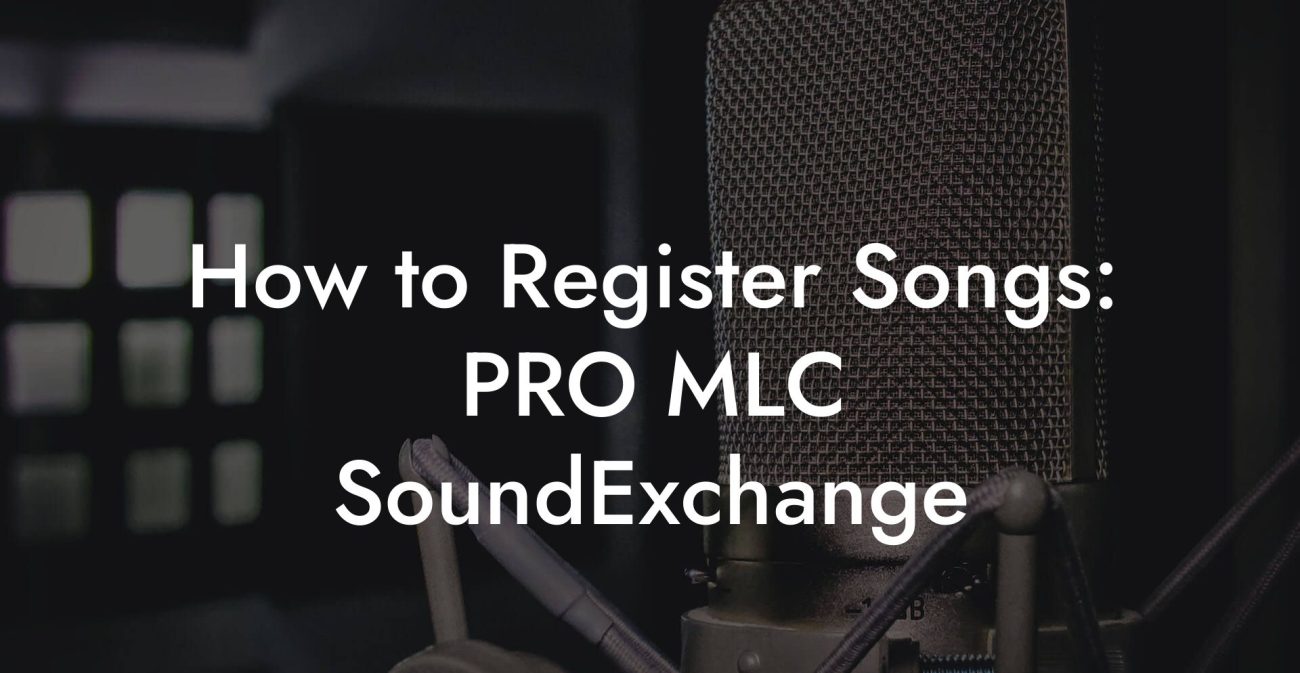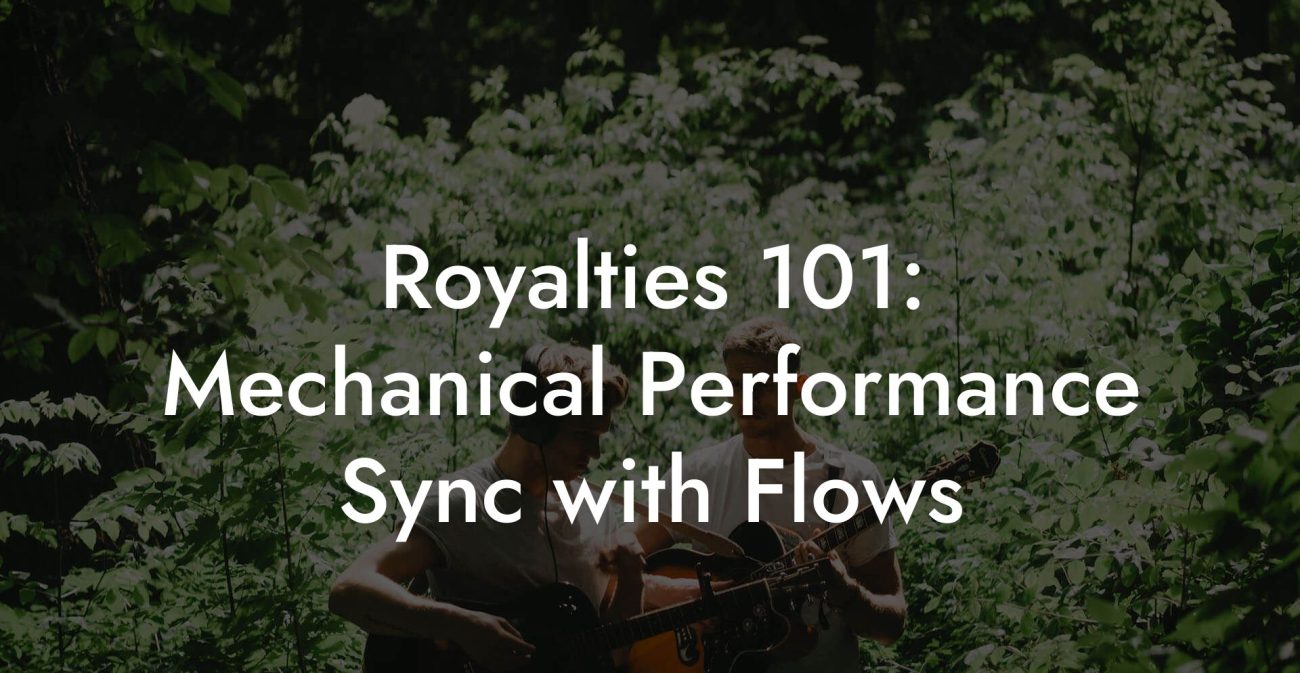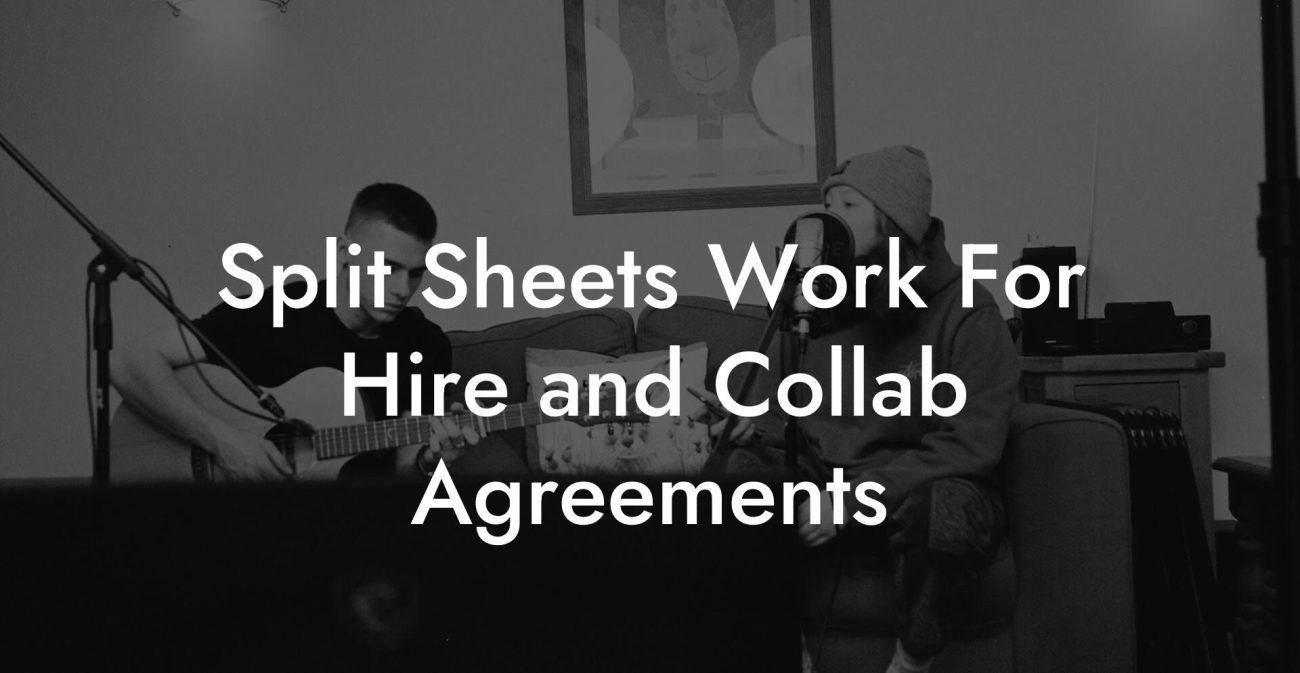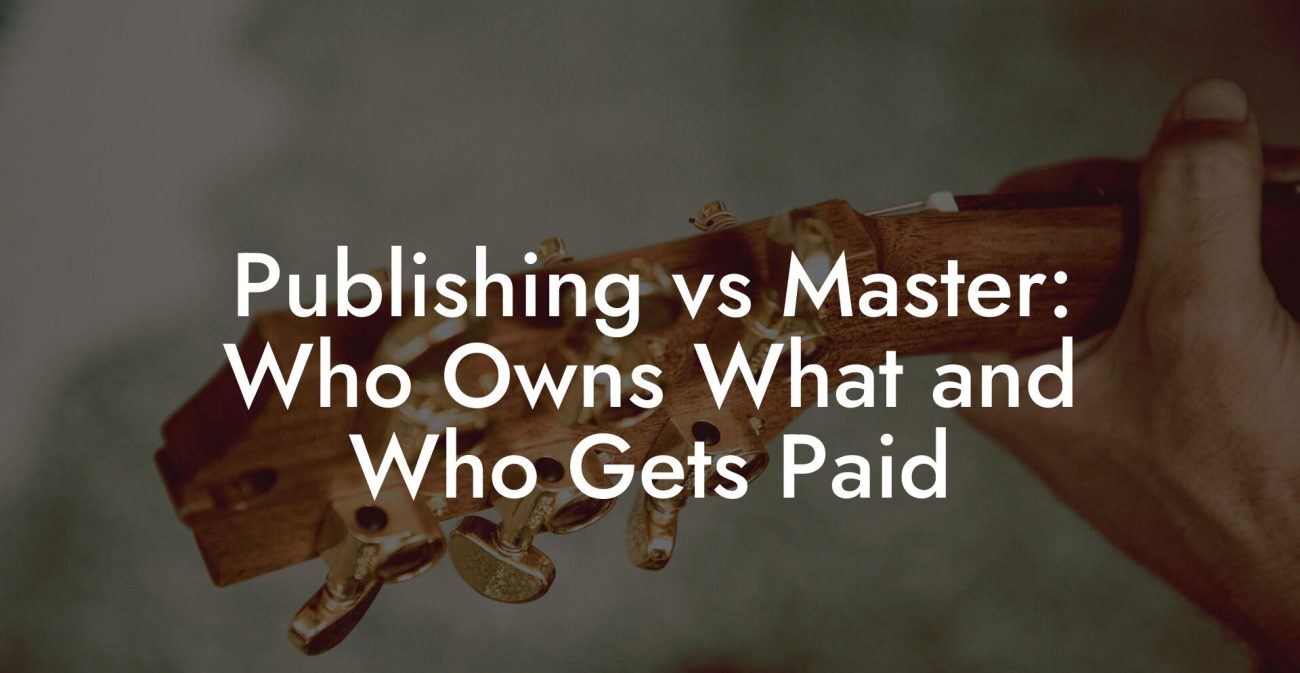Songwriting Advice
The Indie Artist Biz Bible (PROs MLC ISRC UPC EPK)
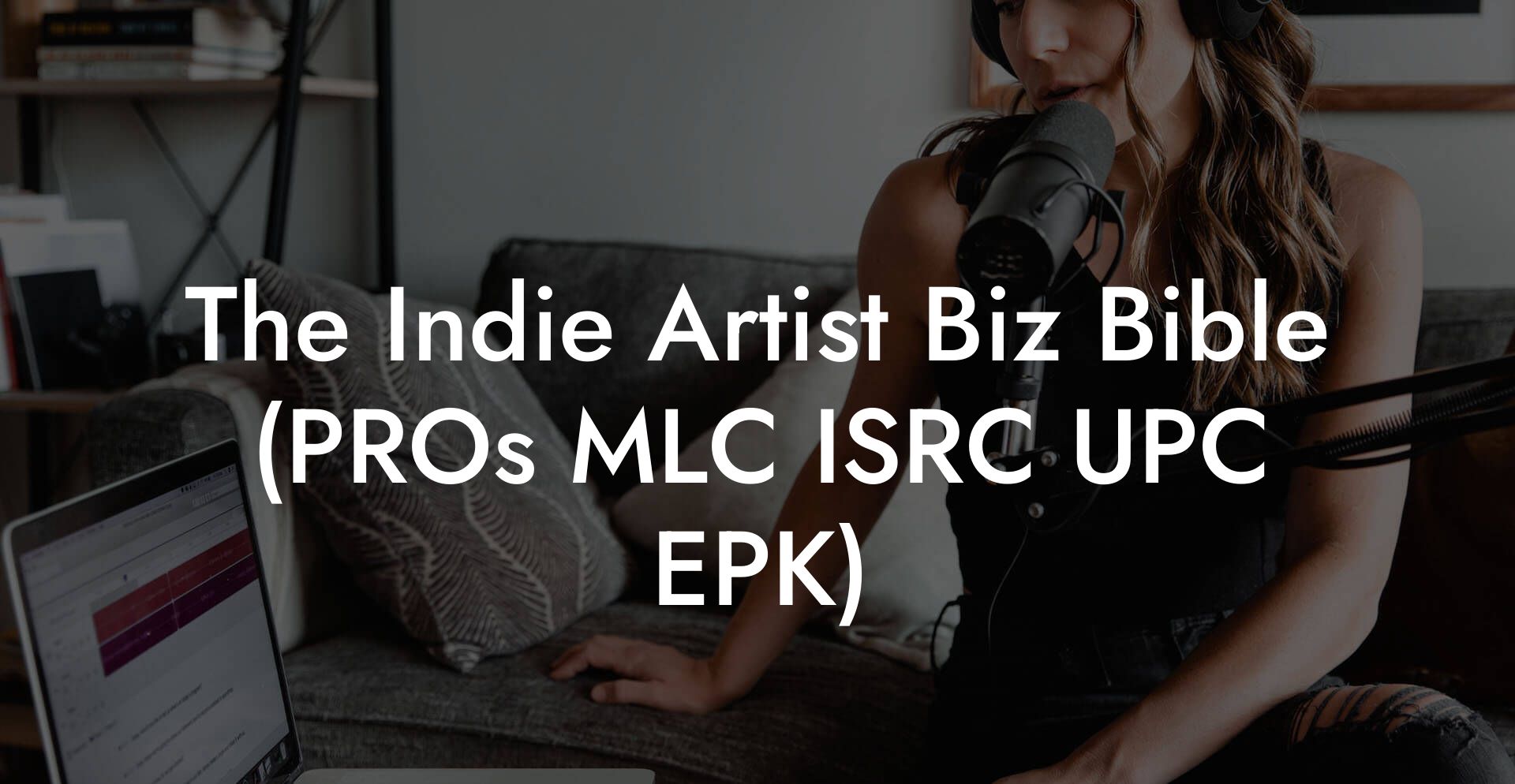
If you are an indie artist who wants money, credit, and fewer headaches, read this. The music business loves to hand out checks only after you pass a dozen boring bureaucratic gates. This guide is the map through those gates. It explains PROs, MLC, ISRC, UPC, and EPK while telling you what to do first, what to never do, and how to sound like you know what you are doing when you email a music supervisor at two in the morning.
Quick Interruption: Ever wondered how huge artists end up fighting for their own songs? The answer is in the fine print. Learn the lines that protect you. Own your masters. Keep royalties. Keep playing shows without moving back in with Mom. Find out more →
Quick Links to Useful Sections
- Why knowing the biz matters
- PROs explained
- What a PRO does
- Major PROs and how they differ
- Real life scenario
- Practical steps with PROs
- The MLC explained
- Mechanical royalties clarified
- Why you should care
- How to register with the MLC
- Real life example
- ISRC explained
- Why ISRC matters
- How to get ISRC codes
- UPC explained
- UPC versus ISRC
- How to get a UPC
- EPK explained
- What to include in an EPK
- EPK format and distribution
- Email pitch template
- The revenue map for indie artists
- Main revenue streams
- How PROs and the MLC fit together
- Registering songs the right way
- Sample split sheet language
- Metadata and why it is everything
- Fields to nail
- Pro tip
- Common pitfalls and how to avoid them
- Tools and platforms that actually help
- Setting up your publishing entity
- Why form a publisher
- When to hire a publisher or admin
- Sample publisher registration steps
- Touring and live performance royalties
- How to maximize live royalties
- Sync licensing basics
- How to pitch for sync
- Pricing ranges
- Action plan that actually works
- First 30 days
- Days 30 to 60
- Days 60 to 90
- Frequently asked questions
This is written for millennial and Gen Z creators who hate jargon but still want to get paid. You will get clear definitions, real life scenarios, checklists, and a take no nonsense action plan. We also walk through common screw ups so you do not accidentally give away royalties or put the wrong name on a song credit.
Why knowing the biz matters
Songwriting and performance are only half of the hustle. The other half is paperwork that pays. If you release a single and forget to register the song, someone else might collect the money that should be yours. If you send a track to a supervisor without an EPK, you look like a hobbyist. Spend an afternoon learning these systems and you will turn confusion into cash.
A quick example. You play a festival and a radio station records your set and streams it later. Without the right registrations, you will get zero performance cash from that stream. If the set contains a cover of someone else, you might owe mechanical fees. This sounds nerdy. It also costs real money if you ignore it.
PROs explained
PROs are Performance Rights Organizations. That is a friendly way of saying they collect money when your compositions are played in public. Public means radio, TV, bars, restaurants, live venues, streaming services, and sometimes weird places like the elevator in a shopping mall.
What a PRO does
A PRO tracks performances of your songs. They collect performance royalties from users like broadcasters and venues. Then they pay you based on the number of plays and an algorithm that values each play. You as a songwriter and your publisher each get a share of the public performance money that a PRO collects. If you have no publisher you get the full writer share but not the publisher share unless you have a publishing administrator.
Major PROs and how they differ
- ASCAP in the United States. Membership is free for writers. ASCAP collects public performance royalties and pays quarterly.
- BMI in the United States. Another large PRO with similar functions. Registration is free. Each PRO has its own payout patterns.
- SESAC in the United States. SESAC is invitation only for some writers. SESAC is private and touts higher service levels for select writers.
- GMR which stands for Global Music Rights. It is smaller and selective. It focuses on high earning acts and complex licensing situations.
- PROs around the world like PRS in the United Kingdom, SOCAN in Canada, SACEM in France, and APRA AMCOS in Australia. These organizations work together to collect royalties internationally for their members.
Real life scenario
Imagine you and a friend write a song. You both register with a PRO. You list the split as 50 writer 50 writer and no publisher because you do not have one. A coffee chain plays your track over their speakers. The coffee chain pays a blanket license to the local PRO. That PRO reports plays and pays both of you your writer shares. If you did not register the song the PRO would not know to pay you. The money either sits unclaimed or goes to someone else that has a matching claim.
Practical steps with PROs
- Choose a PRO and sign up as a writer. If you are in the United States pick ASCAP or BMI unless you have a specific reason to join SESAC or GMR. If you are outside the United States join your local PRo.
- Register every composition you write with your PRO. Put exact split percentages for each writer and publisher. Do not guess. Use whole numbers that add to 100.
- Update registrations when you change splits or register with a publisher. Keep the metadata consistent with other systems like your distributor and the MLC.
- Keep a record of setlists when you play live and submit them when your PRO asks. Good reporting equals more accurate pay.
The MLC explained
The MLC stands for Mechanical Licensing Collective. It is a US organization created to collect mechanical royalties for digital uses like interactive streaming and downloads. This includes the streaming mechanical that Spotify and other services pay for compositions. Before the MLC, getting paid mechanical money for streaming in the United States was messy.
Mechanical royalties clarified
Mechanical royalties are money for the composition whenever a recording of that composition is reproduced. Digital streaming creates mechanical royalties because services reproduce data. The MLC collects this money and pays it to songwriters and publishers who have claims in their database.
Why you should care
If you have compositions that stream in the United States and you do not register them with the MLC or your publishing administrator, mechanical money can sit in a pile of unmatched royalties. That means your share of streaming mechanicals may be unclaimed for years. Registering ensures you get paid for plays in the US on services that route mechanicals through the MLC.
How to register with the MLC
- Create an account at the MLC's portal. Provide songwriter and publisher info. If you have a publisher they may register on your behalf.
- Claim each composition. Enter exact writer credits, ISWC if you have it, and recording to composition links like ISRC codes.
- Keep song splits consistent with your PRO registration. Mismatched splits cause delays and disputes.
- If you change metadata or add new songs update the MLC record so future royalties route correctly.
Real life example
You release an EP through your distributor. Streams roll in from US listeners. If your songs are registered at the MLC your mechanical share for those streams will arrive through the MLC payments. If not, the money sits in unmatched pools and finally reaches rights holders only after manual claims and lots of email pain.
ISRC explained
ISRC stands for International Standard Recording Code. Think of it as the social security number for a specific recording. Each unique master recording gets its own ISRC. Different mixes and live takes need their own ISRCs. The ISRC tracks who owns and distributes a particular recorded version.
Why ISRC matters
Streaming services, radio, and distribution platforms use ISRC to identify masters so plays and sales can be tracked. Without correct ISRC your streams may not be reported correctly. That can lead to missing payouts and mismatches across systems like SoundExchange and the MLC.
How to get ISRC codes
- Many distributors like DistroKid, TuneCore, and CD Baby will assign ISRC codes for you when you release music through them. This is the easiest method.
- If you need to manage ISRCs yourself apply to your national ISRC agency and generate codes. This is common when you own your masters and manage releases across labels and distributors.
- Record keeping matters. Note the ISRC for each release, where it was assigned, and which distributor used it. Reusing an ISRC for a different recording creates chaos.
Real life scenario
You upload a remastered version of a song and reuse the original ISRC to preserve play counts. That is fine only if the recording is substantially the same. If the remaster changes the recording enough you must assign a new ISRC. Otherwise royalties and metadata will get misrouted.
UPC explained
UPC stands for Universal Product Code. For digital music the UPC or barcode identifies a release like an album EP or single. Every release needs its own UPC. Sent out properly a single and an album will each have a unique UPC so stores and platforms can track sales and catalog items correctly.
UPC versus ISRC
ISRC identifies a track recording. UPC identifies a product containing one or more tracks. A release may contain many ISRCs but only one UPC. Think of UPC as the box and ISRCs as the items inside.
How to get a UPC
- Distributors commonly assign UPCs for your releases. Use that if you want a quick setup.
- Buy your own UPC from GS1 if you want full ownership and control over the barcode. This also helps if you plan to release on physical media and want consistent metadata across retailers.
Real life example
You bundle older singles into a greatest hits release. You must assign a new UPC because that compilation is a distinct product. If you forget the UPC some stores will refuse to accept the release or it will show as duplicates in catalogs meaning listeners get confused and analytics break.
EPK explained
EPK stands for Electronic Press Kit. This is your one page to make industry people not roll their eyes. An EPK helps supervisors, labels, promoters, and journalists see your work and your brand quickly. Good EPKs make it easy to decide yes or no.
What to include in an EPK
- Short bio of one to three paragraphs written like you are speaking to a friend who also loves music. Include notable achievements like playlists, syncs, or tours.
- Music links to streaming and download pages. Embed playable files or provide high quality download links for one press ready track and one full release.
- High resolution photos that are current. Have one landscape and one portrait photo for different layouts.
- Social links and follower counts. Be honest. Inflating numbers looks desperate.
- Press quotes of one or two lines with source and link. Keep them current and specific.
- Contact information with an email that looks professional and a phone number if you want to give one.
- Technical specs such as song lengths, writers, ISRCs, label or distributor, and publisher information. This helps supervisors clear sync quickly.
EPK format and distribution
Make a clean one page web EPK and a press ready PDF. Host the web EPK on your site and link it in pitches. Add a simple password when sending to supervisors if you want extra control. Keep file sizes reasonable. Supervisors hate slow loading links.
Email pitch template
Use a short subject line and a one paragraph pitch with a direct link to the EPK and the track. An example subject is Quick Sync Pitch for Scene XYZ. The body should say who you are, where the song fits, and a one line reason why you fit their project. Attach no more than one audio file and offer stems only after interest is expressed.
The revenue map for indie artists
Understanding revenue streams is the key to prioritizing registrations. You will not get rich on streaming alone. But you can stack every available stream and clear pathways to get paid for each of them.
Main revenue streams
- Streaming payments from DSPs for the master. These are the tiny per stream amounts that add up when you have many plays. The distribution payout is for the recording. Publication mechanicals and performance royalties are handled separately.
- Mechanical royalties from downloads and interactive streaming. These are for the composition. The MLC in the United States handles many of these payments.
- Performance royalties collected by your PRO for public performances of the composition.
- Neighboring rights in some territories. These are royalties for performers and master owners for public performances of recorded music. The rules vary by country.
- SoundExchange payments in the United States for non interactive digital transmissions like satellite radio and webcasters. SoundExchange pays performers and master owners, not composers.
- Sync licensing fees for placing songs in films, TV, commercials, and games. Sync fees can be significant and are negotiated per use.
- Merch and live revenue from shows and merchandise. These are often the most reliable cash for working artists.
How PROs and the MLC fit together
PROs handle public performance money for compositions. The MLC handles mechanical money for compositions when it concerns US streaming. Master owners use distributors and platforms and are paid separately. To collect everything you need accurate metadata at every stage so each right holder can be identified by the right organization.
Registering songs the right way
Registration is a chain. Each link must match. Bad metadata in one place breaks payouts across all systems. Here is a checklist that actually works.
- Settle the splits with everyone in writing. A text chain is acceptable. Consider a simple split sheet signed by all writers and producers to avoid future fights.
- Pick a consistent display name for each writer and publisher. Use that exact name across PRO, MLC, distributor, and any publishing admin service.
- Register the composition with your PRO as soon as possible after you finish the song. Include co writers and exact percentages.
- Register the composition with the MLC so mechanicals are claimable. Provide ISRCs so recordings link to the composition correctly.
- Upload the master to your distributor and ensure the ISRC and writer credits match the PRO and MLC entries.
- If you hire a publishing administrator like Songtrust or Sentric register with them to collect international mechanicals and publishing that your PRO does not handle. They charge administration fees but can be worth it for global coverage.
Sample split sheet language
We the undersigned agree that the song titled TITLE has the following shares. Writer A 50 percent. Writer B 30 percent. Writer C 20 percent. All parties sign and date. This simple format prevents future fights and is often enough to support claims with PROs and publishers.
Metadata and why it is everything
Metadata is boring. That is why it wins. Metadata is the hidden voice that tells the industry who to pay. Small typos deliver money to the wrong person. A wrong writer name creates a claim wait that can last months.
Fields to nail
- Song title exact punctuation and capitalization
- Writer names spelled consistently
- Publisher name and publisher ID if you have one
- ISRC for the master
- UPC for the release
- ID numbers like ISWC if you have them and PRO work numbers
- Release date and territory
Pro tip
If you change an artist name use a forward reference in the metadata. Example add Formerly Known As Next Name in your EPK so platforms and playlists can link the catalogs and analytics do not fragment.
Common pitfalls and how to avoid them
Most indie artists lose money through avoidable mistakes. Below are the classics and how to dodge them.
- Not registering at all. Do not be that person who says I will do it later. Register now. Later means months of lost unmatched royalties.
- Mismatched splits. If your PRO says writer A 40 and MLC says writer A 50 payments get delayed. Make everyone use the same numbers.
- Using different names. If you use a stage name on Spotify and a legal name at your PRO the match engine might not find you. Use both names in metadata where possible and keep PRO records tied to your legal name while adding stage name aliases.
- Recycling ISRCs incorrectly. Each unique recording needs a unique ISRC. Do not reuse codes unless the recording is the exact same master.
- Handing away publishing. Do not sign away your publishing for a small advance without fully understanding the future cost. Publishing is where sync and long term mechanicals live.
Tools and platforms that actually help
Here is a cheat sheet of services that reduce friction and pay you without emotional labor.
- DistroKid for fast distribution and optional extras like YouTube monetization. DistroKid assigns ISRCs and UPCs when needed.
- TuneCore and CD Baby that also distribute and offer publishing administration add ons.
- Songtrust a publishing administrator that collects mechanicals worldwide for a fee and simplifies publisher registration.
- SoundExchange registers master owners and performers for non interactive digital performance royalties in the United States.
- Audiam for YouTube publishing and performance collections if you have large YouTube usage.
- Songfile for easy mechanical licenses when you want to cover songs legally in the United States.
- ISWC and ISRC agencies for code registration when you need full control of identifiers.
Setting up your publishing entity
Publishing controls how compositions are monetized. If you own publishing you control sync deals, foreign mechanicals, and can collect publisher shares from PROs. Many indie artists start as writers only and later add a publisher entity.
Why form a publisher
A publisher can collect the publisher share of performance royalties and can administrate mechanicals globally. Forming a publisher can be as simple as creating a business name and registering it with your PRO as your publisher. For serious operations artists create a limited liability company for tax and professional reasons.
When to hire a publisher or admin
If your catalog earns meaningful royalties internationally or you want help clearing and collecting mechanicals hire an administrator. Expect them to take a percentage fee in return for handling registrations and collections worldwide.
Sample publisher registration steps
- Choose a publisher name and register it with your home PRO as a publishing entity.
- Open a bank account for publishing receipts if you are forming a business.
- Consider a publishing administrator for global claims and mechanicals.
Touring and live performance royalties
Live shows do more than sell merch and tickets. They also create performance data that PROs use to pay writers. But only if you report your setlists or the venue reports them correctly.
How to maximize live royalties
- Submit setlists to your PRO after each show. Many PROs accept mobile uploads.
- Encourage venues to report performances. Larger venues and festivals usually do this. Smaller bars often do not. Know the difference.
- If you perform covers factor in mechanical licensing for recorded cover versions and ensure venue reporting does not misattribute plays to recorded versions you own.
Sync licensing basics
Sync is where songs go to become money. A single well placed sync can pay more than years of streaming. Sync deals pay for masters and compositions. If you own both sides you can negotiate aggressively.
How to pitch for sync
- Prepare an EPK with stems and a tempo grid for quick editing.
- Identify target supervisors and their recent work so your pitch is relevant.
- Keep the pitch short. Explain where the song fits in one line and provide a direct link to a press ready MP3 and the EPK.
- Be available for quick clearance and provide split information to speed up the legal team.
Pricing ranges
Sync fees vary wildly by project. Indie placements on low budget projects can land anywhere from a few hundred to a few thousand dollars. Network TV and major films pay much more. Always ask for a usage fee and a master license if you control the recording. If the use is global and in perpetuity raise the price or walk away.
Action plan that actually works
This plan tells you exactly what to do in the first 90 days after you finish a release.
First 30 days
- Decide your artist name and publishing name and use them consistently across all services.
- Register with a PRO as a writer and create a publisher account if you plan to own publishing.
- Sign up at the MLC and add your new songs with accurate splits and ISRC links.
- Upload your masters to your distributor and confirm ISRCs and UPCs. Match writer credits to your PRO entries.
- Create a web EPK and a press ready PDF. Include at least one high quality photo and one clean MP3 and the metadata page with ISRCs and UPC.
Days 30 to 60
- Register recordings with SoundExchange if you expect satellite radio and non interactive plays in the United States.
- Open accounts with publishing administrators if you need global collection for mechanicals.
- Submit setlists and document live performances so you can report them easily later.
- Send targeted sync pitches with a clean EPK and one sentence explanation of the scene where the song fits.
Days 60 to 90
- Audit metadata across PROs, the MLC, your distributor, and your EPK. Fix any mismatches.
- Create a folder with stems and instrumentals for quick sync licensing queries.
- Start a spreadsheet for royalty tracking. Log incoming payments and expected incoming payments with dates and sources.
- Set reminders to check unmatched royalties at the MLC and your PRO and follow up on long pending claims.
Frequently asked questions
What is the difference between writer royalties and publisher royalties
Writer royalties are the share that goes to the songwriters. Publisher royalties are the share assigned to whoever owns the publishing rights. If you do not have a separate publisher you might receive only the writer share. Owning publishing lets you collect both sides if you register correctly.
Can I use a distributor to get ISRC and UPC
Yes. Most distributors will assign ISRCs and UPCs when you submit a release. This is fine for most indie artists. If you want full control and lifetime ownership of your UPCs consider buying them from GS1.
Do I need both a PRO and the MLC
Yes. PROs collect performance royalties for the composition. The MLC collects mechanical royalties for digital streaming in the United States. Both are needed to fully collect composition money for streams and public plays.
What is SoundExchange and do I need it
SoundExchange collects and distributes digital performance royalties for master owners and featured performers in the United States for non interactive streaming like Sirius XM and certain webcasters. If your radio or streaming usage includes these channels you should register to collect those payments.
How do I protect my splits when working with collaborators
Write a split sheet and get signatures. Use clear percentages and include writer names as spelled in your registrations. Email chains are evidence. For bigger projects get a simple signed agreement from each contributor to avoid later fights.
What happens if I change my artist name after releases
Keep an archive and note the old name in your metadata. Update your profiles on DSPs to reflect continuity. For major changes you may need new UPCs for future releases but not retroactive ones. Keep records so analytics do not fragment across names.

